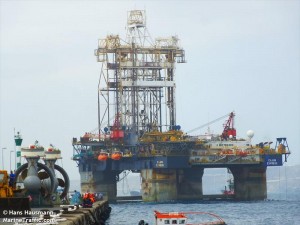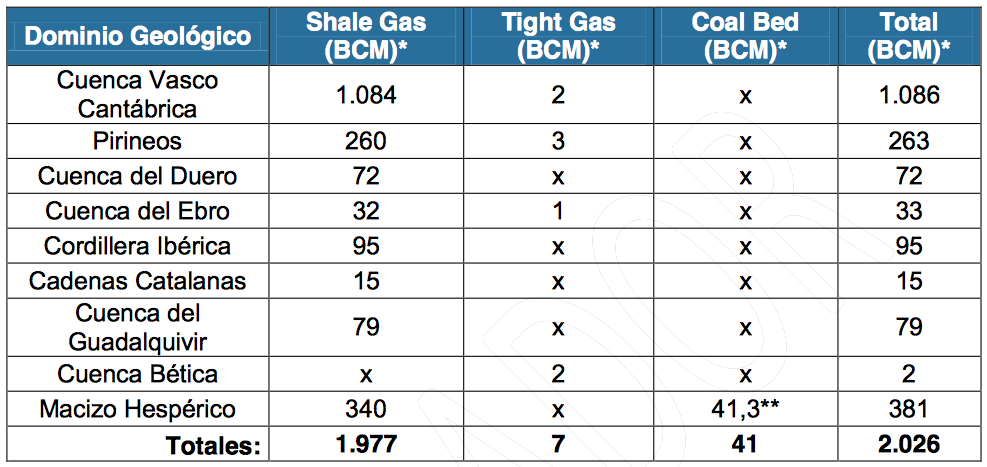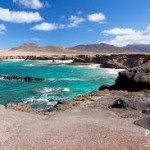Last week I discussed Tony Hayward’s energy company Genel and its activities in Kurdistan. Interesting enough, Genel is also active near another politically complex country called Spain!

Actually, Genel is working with the Moroccan government and another venture backed wildcatter, Cairn Energy, and have reportedly found oil in the area between Morocco and the Canary Islands, quite close to where Repsol is seeking exploration rights, on the Spanish side, from the central government in Spain. The sites lie about 60-80 kilometers (40-50 miles) off the coast of Lanzarote and Fuertaventura.
The regional government of the Canary Islands is vehemently opposed to the project on the grounds that any accident could threaten the tourism industry on which the archipelago’s fragile economy depends.
Repsol and proponents argue that the field has the potential to supply 10% of Spain’s oil needs and that the sluggish Spanish economy needs all the help it can get.
“Evissa Diu No!” (Ibiza says no!)
Cairn Energy has also begun oil exploration about 50 kilometers (30 miles) off the coast of Ibiza and has not only appeared to have caused some damage to flora and fauna with the seismic surveys underway but also ignited a social movement against the plan with the participation of celebrities and artists such as the provocative Jill Love.
Again, the local government of the Balearic islands is firmly against any drilling whatsoever.
Fracking in the Basque Country ?
Another example of the tensions in the country is the issue of hydraulic fracking and shale gas. According to the industry association, there could be as much as 2 billion cubic meters of shale gas in Spain with about half of that in the Basque country.

The drilling technique has kicked off a gas boom in the U.S. but does pose serious environmental risks as discussed in a series of posts back in January and, in Spain, fracking has been met with strong local opposition and bills introduced at the regional level to ban the practice.
The central government in Madrid has responded by changing the law to allow fracking regardless of regional legislation!
Money and Risk
 One issue in this debate has to do with where the money goes. Oil leases and mineral rights to shale gas are sold by the Spain’s central government. At the local level, tourism stimulates the local economies and unlike the U.S., where landowners are paid for mineral rights by gas companies, in Spain, land ownership only applies to the surface and thus local people have less economic interest in hydraulic fracking of the earth below their land.
One issue in this debate has to do with where the money goes. Oil leases and mineral rights to shale gas are sold by the Spain’s central government. At the local level, tourism stimulates the local economies and unlike the U.S., where landowners are paid for mineral rights by gas companies, in Spain, land ownership only applies to the surface and thus local people have less economic interest in hydraulic fracking of the earth below their land.
Another has to do with risk and the very different approach to risk that is taken by business and the pro-business government in Madrid and environmentalists and their allies at the regional level. For business, risk is something to calculate and hedge against.
 As an engineer with experience in offshore drilling, I know that a catastrophic accident such as what happened on the Deepwater Horizon in the Gulf of Mexico is extremely unlikely and that Repsol, at least, has a serious approach to drilling.
As an engineer with experience in offshore drilling, I know that a catastrophic accident such as what happened on the Deepwater Horizon in the Gulf of Mexico is extremely unlikely and that Repsol, at least, has a serious approach to drilling.
On the other side, however, the feeling is that some risks should simply not be taken and the potential damage to two of the world’s most beautiful destinations is simply not worth any amount of oil. On top of that, I question whether or no anyone has actually done the math to contrast oil income v.s. potential impact on turism.
Who to Trust ?
The last point is that this administration and businessmen such as Tony Hayward and Cairn’s Bill Gammell are not well trusted to ensure that drilling is done safely and at no risk. The Administration is the subject of several corruption investigations and the idea that they will provide adequate oversight is doubtful to many people. Hayward was, of course, the CEO of Brittish Petroleum at the time of the Deepwater Horizon accident and Greenpeace has singled out Cairn for drilling off the coast of Greenland!

